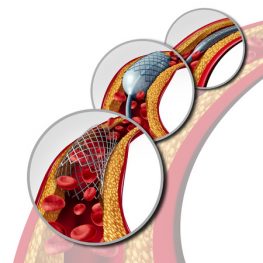Unnecessary Heart Stent Lawsuit
22February2018
22February2018

For decades it has been “common knowledge” that a heart stent can help patients with blocked arteries by increasing blood flow to the heart. The problem is that placing a heart stent requires sedation and surgery which carry risks of their own and new research is showing that stents make little to no difference in the heart health of patients. The risks of heart stent placement include blood clots, perforated arteries, allergic reactions, and infections.
You may be able to recover damages in an unnecessary heart stent lawsuit if:
Contact an experienced medical malpractice lawyer as soon as possible; there is a statute of limitation on medical malpractice claims.
The American health care system is designed around profit, which means that each procedure performed creates profit. In fact, hospitals and doctors around the nation have settled lawsuits over the placement of unnecessary heart stents over the last several years after they were found billing Medicare for unnecessary surgeries.
Many Americans suffer from a heart condition called angina; the condition causes chest pain from clogged arteries that restrict the flow of blood and oxygen to the heart. For decades heart surgeons have been inserting stents – mesh tubes – into the blocked arteries to theoretically hold the blood vessel open and return blood and oxygen flow to normal levels. Many patients report feeling better after heart stent placement and yet studies have found that stents don’t have any significant impact on preventing heart attacks or deaths in patients with coronary artery disease.
A randomized controlled trial was published in The New England Journal of Medicine in 2007. The researchers gathered and analyzed data on 2,300 patients with significant coronary artery disease and documented proof of reduced blood flow to the heart. Each patient was randomly assigned to receive a stent with medical therapy or to medical therapy alone. After years of following each patient, the researchers found that those with the stents had no significant reduction in heart attacks and death compared to patients who had medical therapy alone. More studies were done in following years including three that examined patients who were deemed stable after a heart attack and five that looked at patients who were diagnosed with stable angina or ischemia but had not had a heart attack. In 2012 the studies were published in a meta-analysis in JAMA Internal Medicine. The meta-analysis showed that stents had no benefit over medical therapy for preventing heart attacks or death for patients with stable coronary artery disease. After many cardiologists balked at the results, researchers decided to create a study that would get to the bottom of the possible placebo affect around stents. A trial was created with a “sham control” which left randomized patients unclear about whether a stent was placed in them or not. The results of the trial were published this year. The bottom line was that there was no difference in the “outcomes of interest” between the intervention and placebo groups.
What percentage of heart stents are deemed unnecessary?
A study published by The Journal of the American Medical Association (JAMA) in 2011 found that in 44 percent of cases analyzed doctors didn’t even try to prescribe medication and lifestyle changes before performing an elective heart stent procedure. The researchers found that only 50 percent of these stents were “appropriate,” and 12 percent were “inappropriate.”
The Seattle personal injury attorneys at Morrow Kidman Tinker Macey-Cushman, PLLC have years of experience representing families harmed by medical malpractice and other types of negligence. We seek justice for patients who have been harmed by preventable medical errors including birth injuries, hospital-acquired infections and wrongful death in Seattle and across Washington State. There are no fees or expenses to file a personal injury case as we only receive payment if we recover damages on your behalf. Do not delay; personal injury claims come with a Statute of Limitations, which means they must be filed within a certain time frame of the injury.
Call us now at (206) 752-4366 or contact us online to schedule a free consultation with one of our compassionate, experienced attorneys.